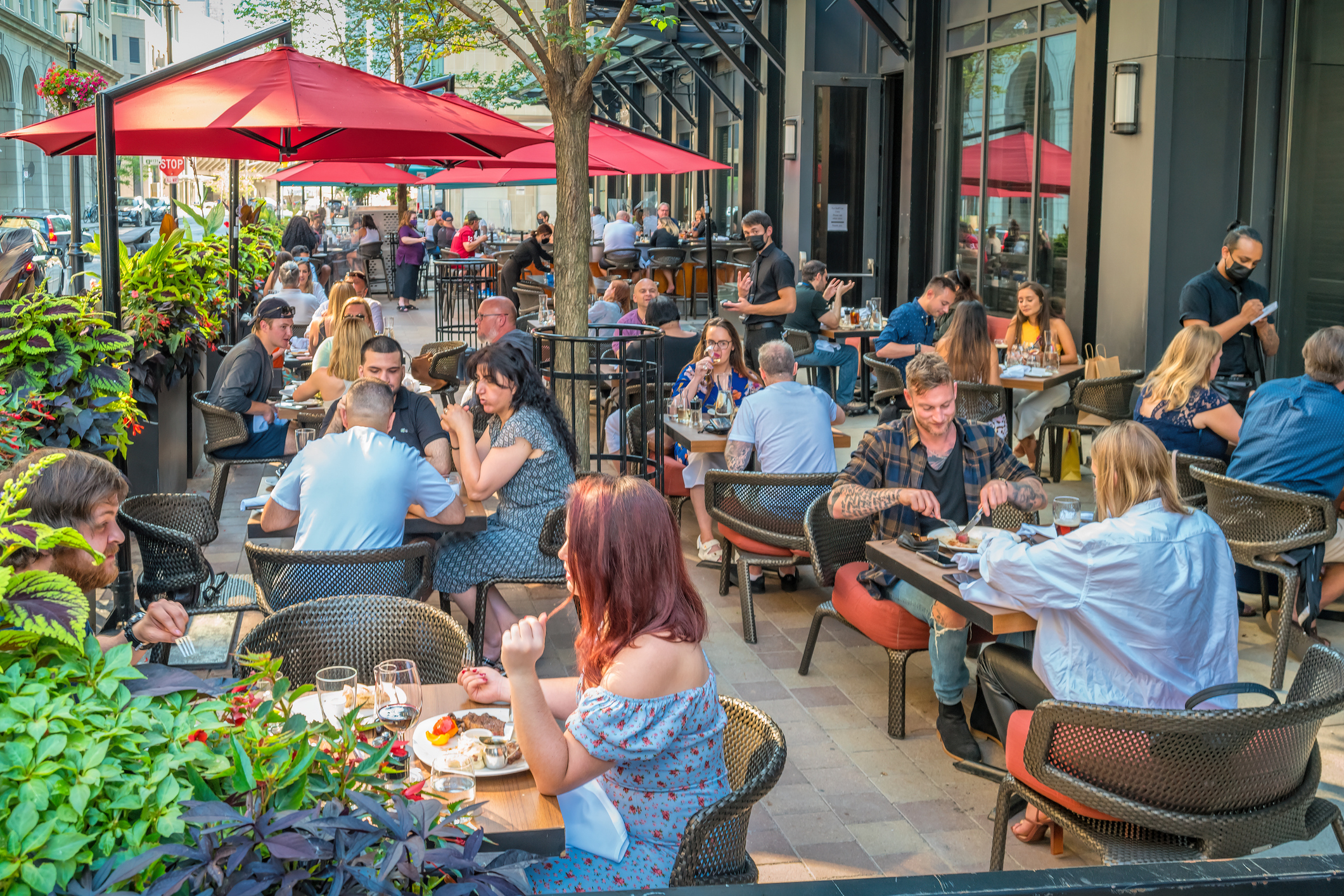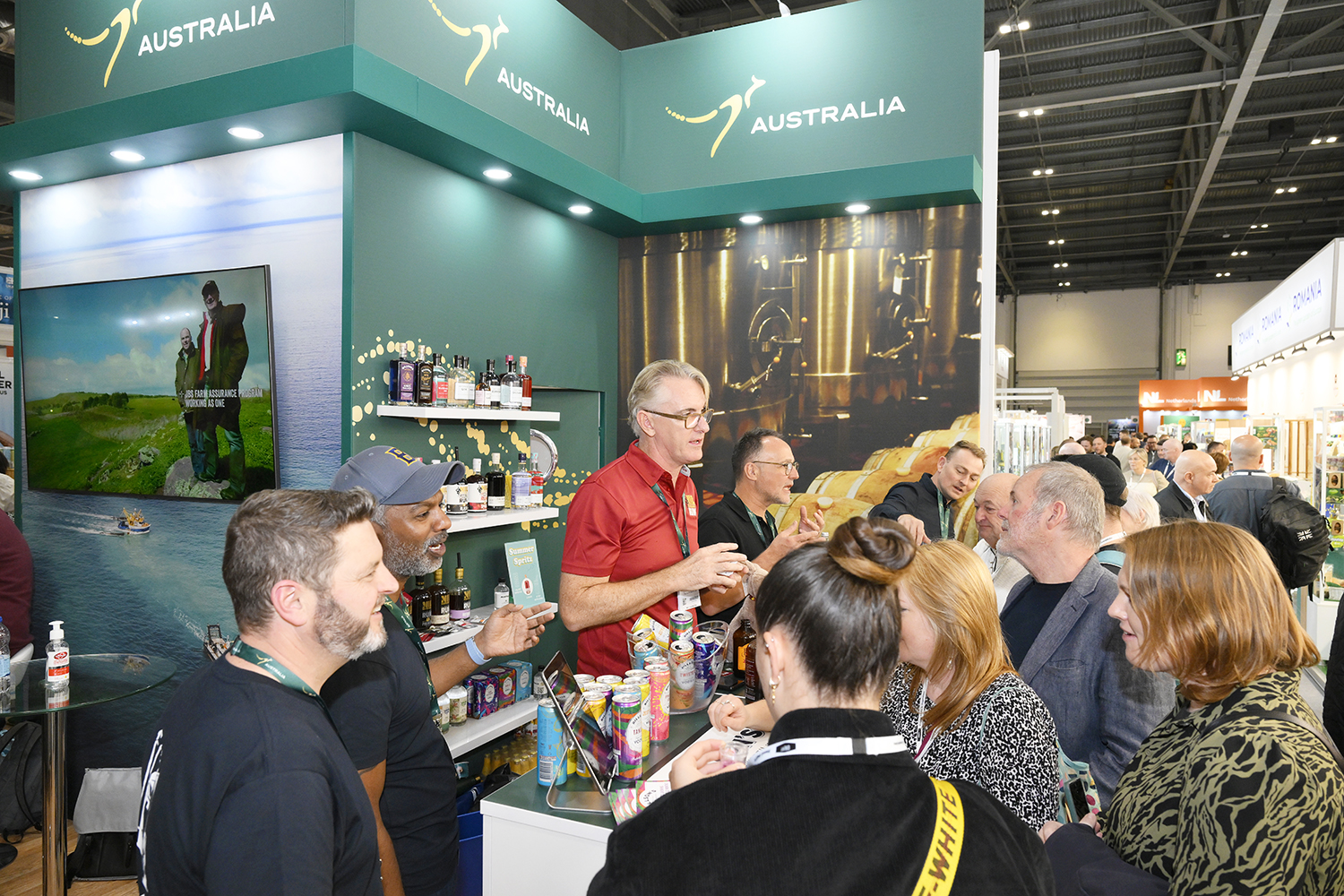This website uses cookies so that we can provide you with the best user experience possible. Cookie information is stored in your browser and performs functions such as recognising you when you return to our website and helping our team to understand which sections of the website you find most interesting and useful.
Hospitality reacts to Levelling Up and Regeneration Bill unveiled in Queen’s speech
By Eloise FeildenThe Queen’s speech, delivered by Prince Charles yesterday, unveiled a bill aimed at regenerating high streets and extending al fresco dining. But what does this really mean for the hospitality industry?

The bill aims to provide local leaders with the powers to revitalise town centres.
The number of empty shopfronts has risen to one in seven across the country, according to the British Retail Consortium, and the new bill aims to see this number driven down.
Al fresco dining is a key part of the new legislation. In support of reinvigorating high streets, pavement licensing red-tape will be permanently scrapped, freeing up businesses to serve food al fresco and attract diners year round.
Businesses were granted temporary licenses during the pandemic to serve guests on pavements, mitigating lost floorspace for tables due to social distancing requirements.
Through new legislation, these licenses will be made permanent.
Officially announced as part of the Queen’s speech yesterday, Prince Charles, who delivered the speech on behalf of the Monarch, said: “A Bill will be brought forward to drive local growth, empowering local leaders to regenerate their areas, and ensuring everyone can share in the United Kingdom’s success. The planning system will be reformed to give residents more involvement in local development.”
Partner Content
Commenting on the content of the Queen’s Speech, setting out the Government’s legislative proposals, UKHospitality CEO, Kate Nicholls said much of the address will “unshackle our businesses” through new legislation.
“History shows us that hospitality is capable of driving growth across the nation, being in every village, town and city it is uniquely placed to deliver the Governments priorities and drive levelling up, generating jobs and economic growth.”
However, Nicholls criticised the lack of immediate relief to hospitality businesses in the short term, urging the Government to “ensure that regulatory reliefs come as soon as possible, to help struggling businesses stay afloat”.
Nicholls said of the new legislation to make pavement licensing permanent:
“Making pavement licences permanent is a really positive move. They were vital during the pandemic enabling businesses to trade, when they would otherwise be forced to close or restrict their opening hours. These outdoor spaces also benefit town and city centres, enabling them to enjoy the sort of outdoor experiences available elsewhere, and helping local economies recover faster, contributing to levelling up.
“Pavement licences also revealed the hospitality industry’s ingenuity and creativity, and significant levels of investment which will now continue to return value. That same innovation must also ensure that this opportunity for venues pays due regard to accessibility, so that all customers can benefit.”
Related news
UK Government urged to raise alcohol-free beer threshold in line with Europe
Top 10 tips for selling more cider
Rapper Aitch celebrates the north with Southern Comfort campaign





